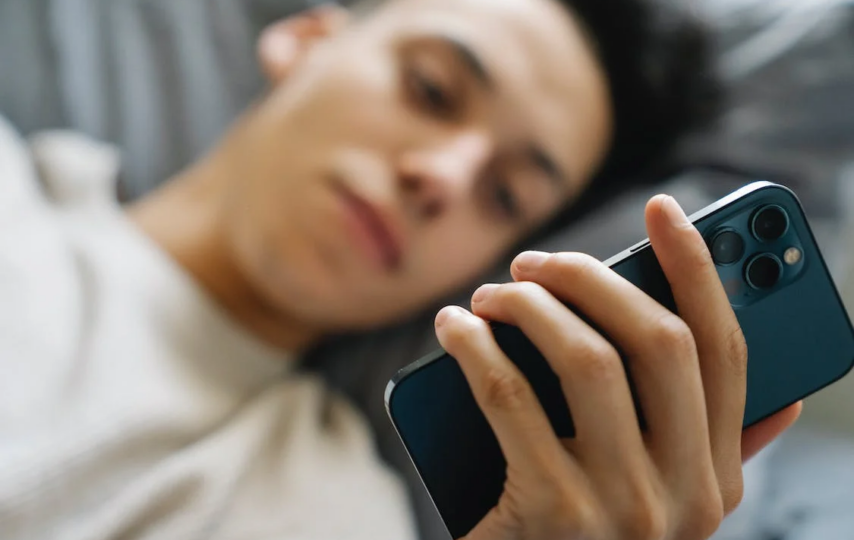Nowadays, it’s common to experience social media addiction. You might even be reading this on a phone right now, the same way over 80 percent of Americans do.
Smartphones and social media are often criticized for being an intrusive distraction, but this technology isn’t going away anytime soon. The fact is that social media provides a quick, easy, and entertaining way for people to read the news or check in on friends and family.
These apps are so incredibly popular that people spend hours on them every day, usually without even realizing it.
So how do they do it? How do social media apps keep people engaged for so long?
Turns out, pretty easily.
The Science of Scrolling
In 1938, a behaviorist named B.F. Skinner pioneered the science of operant conditioning. His “Skinner box” would give out treats to lab rats who pushed a button, and it wasn’t long before the rats were pushing it whenever they got hungry.
The rats really got hooked, however, when Skinner changed the box to give treats at random, rather than on each button push. It was this mystery about when treats would appear that made the rats push the button incessantly. Skinner coined his findings as “the variable reward system.”
If this sounds like social media to you, it should. Randomness is a key addictive element of social media. Did someone like your post? Is new content showing up when you open the app? Are you getting followers?
Social media conditions users to keep coming back. The less they know what to expect, the more they want to find out.
Fear of Missing Out
Back in 2018, travel influencer Johanna Olsson was caught using a green screen to fake photos of a trip to Paris. She wasn’t the first to do it and she likely won’t be the last, but her photo shed light on an important truth: social media is fake.
These apps place high value on larger-than-life influencers like Olsson because they give users a lifestyle to follow and aspire to. They create the impression that we’re all just one brave leap away from living the life of our dreams, and the secret to success lay hidden in these influencers’ posts.
Influencers and brand managers use social media to build a likeable persona, and it doesn’t matter if it’s real or not. All that matters is that people keep engaging and scrolling.
It’s tempting to feel jealous of influencers and celebrities, but the life they project is carefully curated to make you feel that way. Unrealistic expectations are the norm.
Notifications Are Fun

“You’ve got mail.”
Long ago, getting notifications was fun. Whether it was an email or a MySpace message, nothing compared to the dopamine rush of others’ attention.
Social media is a place where people can express their personality, and positive reactions from others can be deliciously validating.
In 2020, a leaked document from Facebook showed that a third of teen girls who use Instagram suffer mental health issues—findings which surprised no one. Vulnerable young minds are highly susceptible to social media, and validation from others can be addictive.
App notifications hint at validation, so sounds and vibrations become associated with self-worth and value. When the phone is silent, young people can feel forgotten and worthless.
You’ve probably noticed how app notifications are increasingly irrelevant. Few care about how so-and-so reacted to some old post, but the alert alone may get them to open the app and scroll.
You Are the Product, Not the App
Advertising is expensive, and businesses want their money spent wisely. Since it’s easier to sell lemonade to someone who’s thirsty, lots of work goes into researching what makes people thirsty and which of them buys lemonade.
Social media performs that research. As people spend time on these apps, their habits and behaviors are tracked to help people make better guesses about where to advertise. The more they know about possible customers, the easier it becomes to sell lemonade.
Social media apps are addictive because it’s in their best interest to be. Users don’t use apps so much as are used by apps to help advertisers sell more stuff. You—not the app—are the product.
Building Healthy Online Habits
We social media users aren’t so different from Skinner’s lab rats. We like the satisfaction of “likes,” and we enjoy the excitement of new content. These are addictive elements, however, and if we’re not careful, we could end up wasting time and feeling depressed.
There are good uses for social media that go beyond scrolling, such as:
- Educating on niche topics
- Raising awareness about important issues
- Sharing photos and updates with loved ones
- Building uplifting communities
- Offering support and encouragement to others
In closing, treat social media the same way you treat friends and acquaintances: If being there makes you feel worse about yourself, find somewhere more uplifting.








